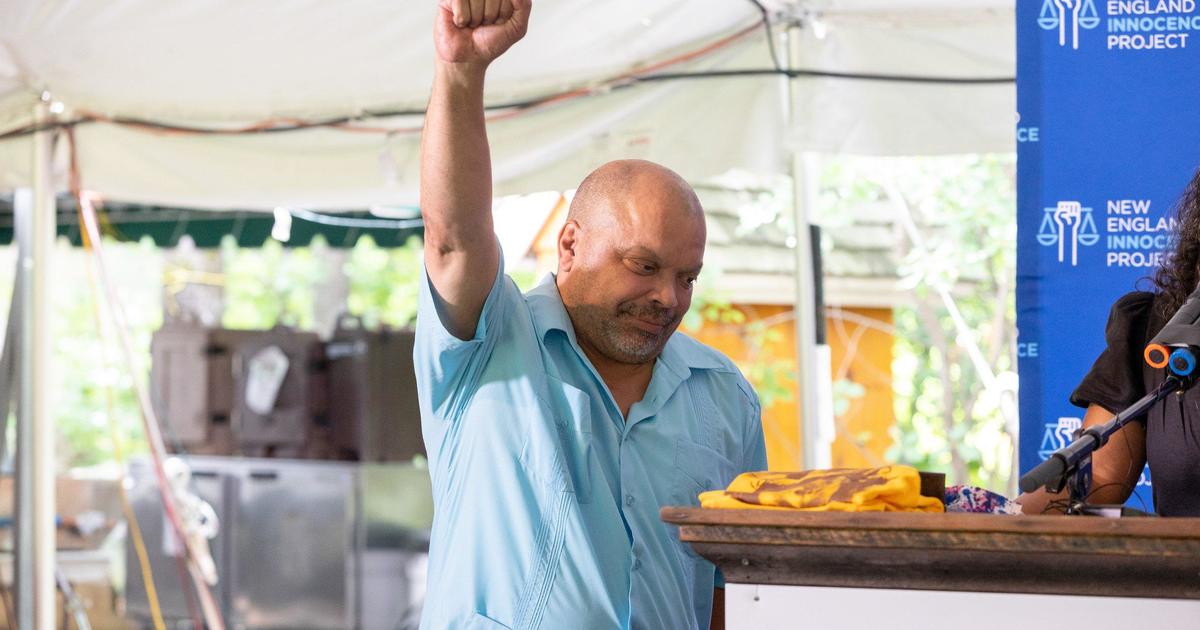A man convicted of murder in 1993 and sentenced to life in prison was granted a new trial by a Massachusetts judge last week, as the validity of key pieces of evidence used to convict him has been called into question. Now, Thomas Rosa’s attorneys are calling on prosecutors to drop charges against him altogether.
Suffolk Superior Court Judge Michael Ricciuti issued an order on Wednesday that vacates Rosa’s convictions for the 1985 killing of Gwendolyn Taylor, who was 18 years old at the time of her death, court documents show. Rosa has been tried three separate times for the crime and maintained his innocence through the decades.
In a statement to CBS News, a spokesperson for the Suffolk County District Attorney’s office said, “We assented to the motion for a new trial based upon the relevant information. We are in the process of reviewing the justice’s ruling and will make a decision at a future date.”
Ricciuti’s decision came more than three years after his attorneys, Radha Natarajan of the New England Innocence Project and Charlotte Whitmore of the Boston College Innocence Projram, filed a motion seeking a new trial. Rosa was released from prison in October 2020 while the judge considered the motion, the New England Innocence Project said in a news release. In his order, the judge wrote that new DNA evidence “casts doubt regarding the reliability of the eyewitness testimony” in the case, which was a cornerstone of the state’s argument.
“Under a confluence of evidence analysis, the new DNA evidence and modern eyewitness science warrant a new trial,” the decision reads.
“Rosa’s conviction, the result of the three trials and based on evidence that ‘far from overwhelming’ … was based on two eyewitness identifications supported by blood typing, all of which has been called into question,” the decision reads, adding, “Because such evidence would be a real factor within jury deliberations, there was a substantial risk of a miscarriage of justice sufficient to grant a new trial.”
The New England Innocence Project and the Boston College Innocence Program were scheduled to hold a news conference Monday outside Suffolk Superior Court in Boston, where representatives from both organizations planned to call on Suffolk County District Attorney Kevin Hayden’s office to drop charges against Rosa instead of moving ahead with a fourth trial.
“We are hopeful that the District Attorney will now end this nightmare by dismissing all charges against Mr. Rosa,” Natajaran said in a statement before the news conference. “There should be no fourth trial for this innocent man.”
New DNA testing and analysis cast uncertainty over the forensic blood-typing evidence that prosecutors used to initially convict Rosa during trial, according to his attorneys and court filings.
“The only remaining evidence was the testimony of two eyewitnesses who viewed the perpetrator at night for less than ten seconds under circumstances that we now know, based on numerous exonerations and research, create a high risk of misidentification,” the New England Innocence Project said. The organization said that one eyewitness also “described a scenario where the victim and assailant knew each other, but Mr. Rosa and the victim never knew each other.”
The Massachusetts Commonwealth has allegedly lost evidence from the original crime scene, including the weapon used in Taylor’s killing, according to the New England Innocence Project.
CBS News contacted the New England Innocence Project for additional comments but did not receive an immediate reply.
Last week, Jesse Johnson, a man who was sentenced to death for a 1998 murder in Oregon, walked out of a county jail a free man two years after the state’s Court of Appeals reversed his conviction. The Oregon Innocence Project accused the state of committing a “heinous injustice” in its handling of the case.


